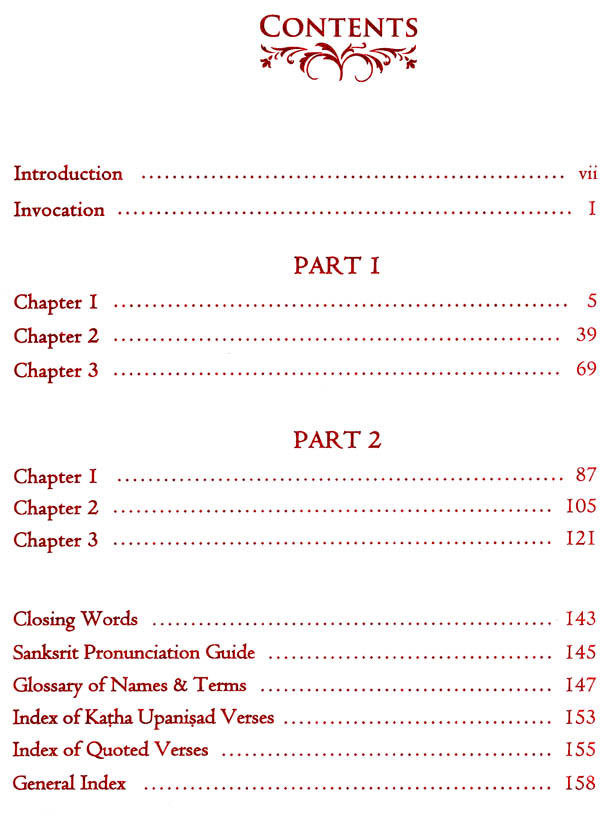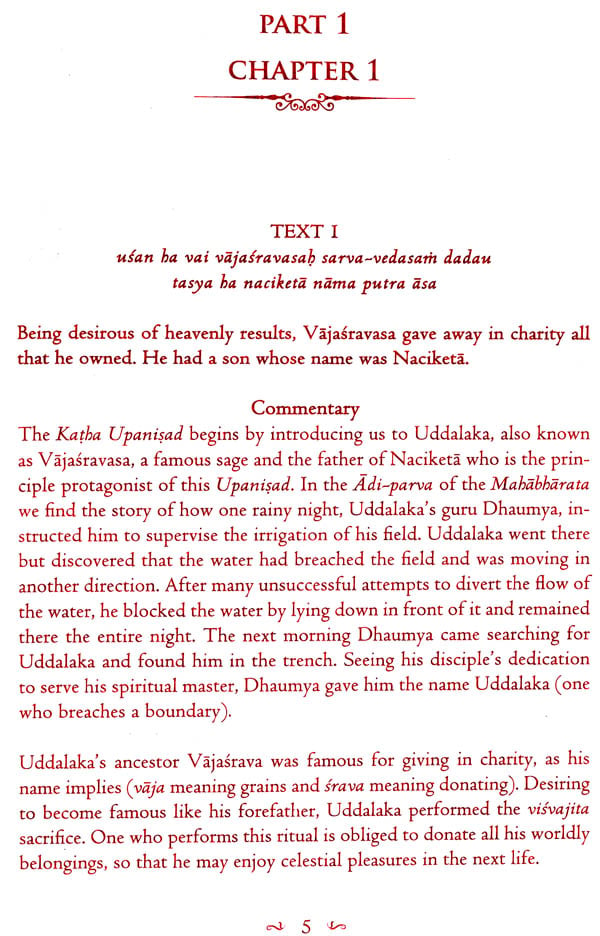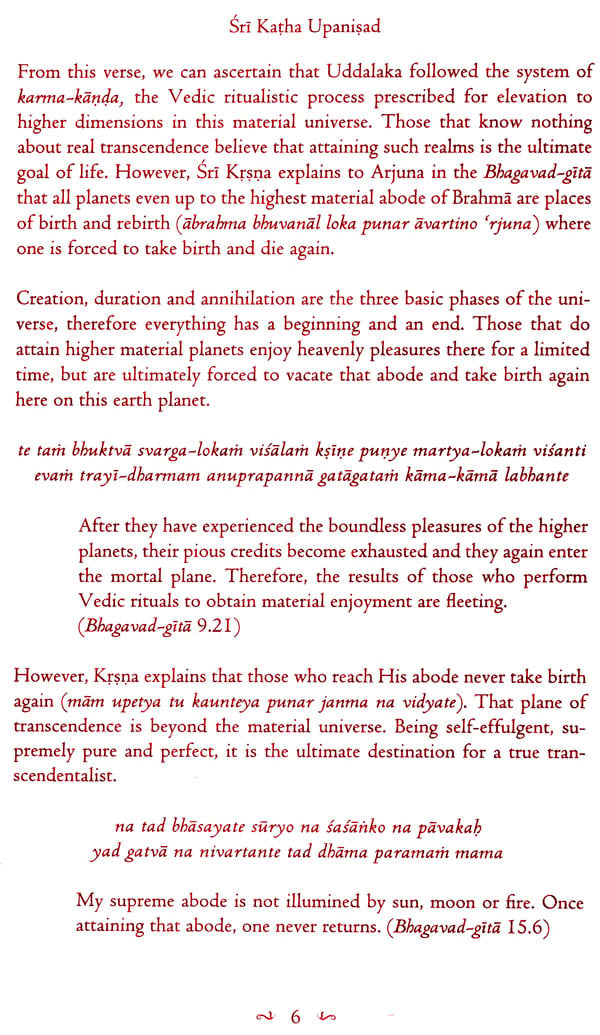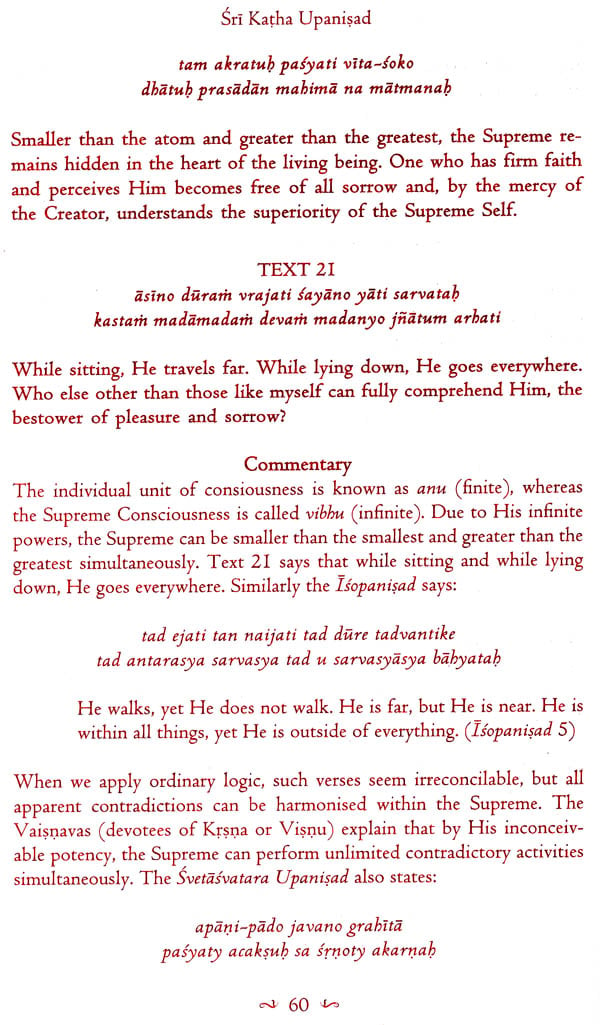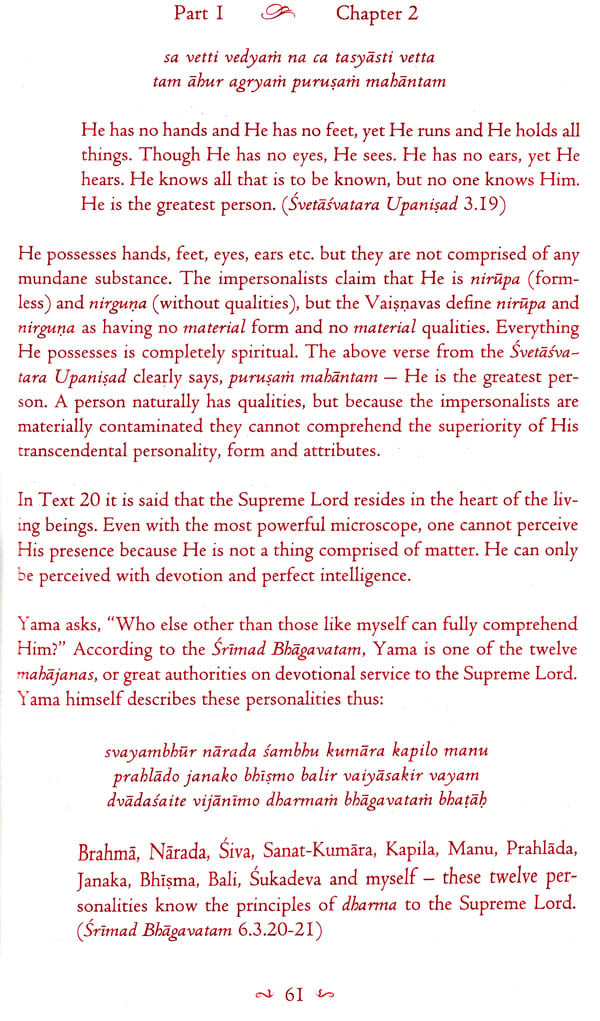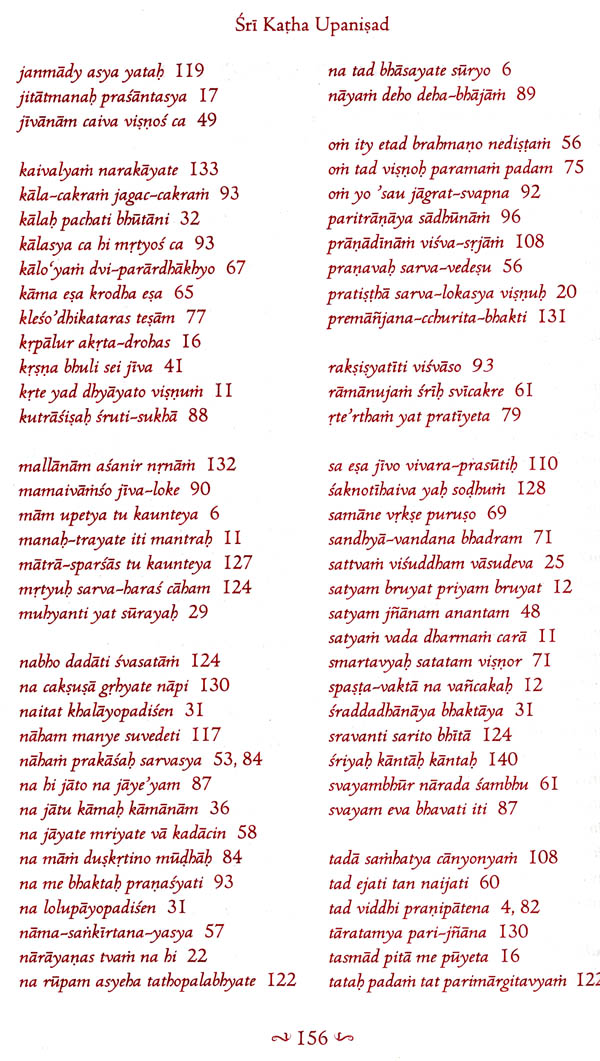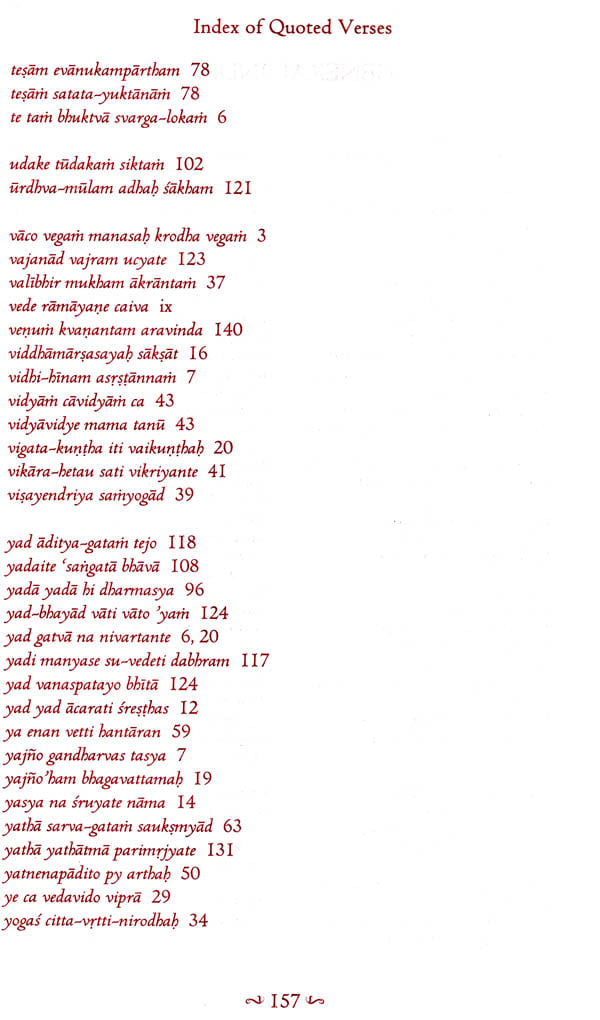
Sri Katha Upanisad- Enlightenment Through Death (Vaishanava Commentry)
Book Specification
| Item Code: | NAY506 |
| Author: | B.V. Giri |
| Publisher: | Gosai Publishers |
| Language: | English |
| Edition: | 2015 |
| ISBN: | 9788192660141 |
| Pages: | 174 |
| Cover: | PAPERBACK |
| Other Details | 8.00 X 5.50 inch |
| Weight | 210 gm |
Book Description
I) Samhitas - texts giving the mantras used in various rituals.
2) Brahmanas - texts describing the Vedic rituals.
3) Aranyakas - texts explaining the significance of the Samhitas and the Brahmanas.
4) Upanisads - texts describing knowledge of the Absolute Truth.
The term `Upanisad' means to 'sit nearby' because traditionally the disciple would hear spiritual knowledge from the guru as he humbly sat at his feet, This is why the Vedic texts are also known as sruti (that which is heard).
There are more than 200 Upanisads, many of which have been lost. How-ever, the following ten Upanisads (das'opanisads) are generally accepted as the most important:
Isa Upanisad, Kena Upanisad, Katha Upanisad, Prasna Upanisad, Mundaka Upanisad, Mundukya Upanisad, Taittiriya Upanisad, Aitreya Upanisad, Chandogya Upanisad and the Brhad-aranyaka Upanisad Due to their ambiguous language, the Upanisads sometimes appear vague in regards to the nature of the Absolute Truth.
Book's Contents and Sample Pages
